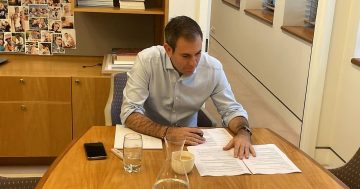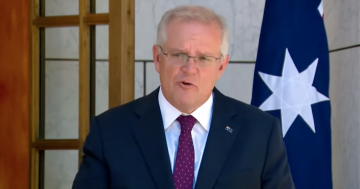Ben Hurley* recaps some expert advice from a recent Future of Super podcast episode.
 Financial advice around retirement is “very broken,” according to highly experienced superannuation industry figure Jeremy Cooper, who called for “very major changes” to allow Australians access to better quality advice.
Financial advice around retirement is “very broken,” according to highly experienced superannuation industry figure Jeremy Cooper, who called for “very major changes” to allow Australians access to better quality advice.
The proposals to emerge from Michelle Levy’s Quality of Advice Review promise to help more Australians get advice through super funds, he said, although “this area is unfortunately very broken.”
“We need something pretty bold, we can’t just be tinkering around with a few definitions, we need some very major changes,” Cooper said, speaking with Julia Newbould, managing editor at Conexus Financial, on the Future of Super podcast.
Cooper chaired the Cooper Review of Australia’s superannuation system between 2009 and 2010, and spent more than a decade as chairman of retirement income at life insurer Challenger.
He said he likes the way the Levy Review is heading, and hopefully it ultimately helps remove blockages for “literally tens of thousands of people who were already in retirement in big super funds, and many, many more coming, to get…much more useful and granular advice”.
With the Retirement Income Covenant, which came into effect in July, putting the spotlight on funds’ offerings post-retirement, Cooper said the emergence since July of numerous “lifetime-income-style products” which are “intended to respond to what the Retirement Income Covenant was looking for,” were tangible evidence the industry was changing.
Research by asset and investment consultants Frontier had found clear evidence a majority of fund members need “some form of guidance, not necessarily full advice… from their fund, to point them in the right direction,” Cooper said, although it remained to be seen how advice rules would be changed to allow funds to play this role.
However a large number of superannuation funds “really didn’t foresee that they were going to be in the advice business as well as the building-up-of-retirement-savings business,” Cooper said, and had resisted being part of it.
“They didn’t foresee what significant financial institutions…they were going to become as this industry grew,” Cooper said, noting complex rules around advice had not helped.
“So we’re in heavy catch-up mode.”
Unfocused
Also speaking on the podcast was Kate McCallum, an award winning financial advisor and author of best-selling book The Joy of Money: The Australian Woman’s Guide to Financial Independence.
McCallum said there was a large variation among her clients in their understanding of their retirement needs, with many still largely focused on a “number they might need in retirement, but then what happens after that, well, it tends to be a little fuzzy”.
More sophisticated clients had a clearer idea of what their income might look like in retirement, what expenditure they will be able to afford, and how much they might need to adjust spending in the case of a market downturn.
“We know that only about ten per cent of Australians currently receive advice,” McCallum said.
“So that’s 90 per cent of people who don’t currently get advice, and are going into a very, very complex phase of their lives without necessarily having an objective party to give them very specific, personal guidance.”
She often uses the ASFA Retirement Standard guidelines in her work with clients, as this research thoroughly breaks down the component parts of annual income to identify what the typical comfortable retiree would spend in retirement.
Her work involves going through those components line by line to identify where client expenses might be different.
Many of her clients find their numbers fall “way above the ASFA retirement guide” due to the lifestyle and discretionary expenses they envisage for themselves in retirement.
Some clients are surprised at how much more they spend than they realised, she said, particularly those accustomed to having a healthy cash flow, who “haven’t had to think a lot about how much money is actually going out”.
It is also common to see a “flurry of expenditure in the early years of retirement,” as new retirees lap up their freedom and pursue new hobbies and dreams.
“So, it’s almost like the gates are opened up, and sometimes what we need to do is pace out that flurry of spending so that they don’t spend too much too soon,” McCallum said.
There is “probably a bigger cohort than many of us realise” where circumstances, not choice, will determine their lifestyle in retirement, she said.
The wide-ranging podcast discussion also covered digital tools, reverse mortgages, whether most retirees end up spending most of their superannuation, and more detailed discussion on the proposals to come out of the Levy review.
*Ben Hurley is a journalist and editor with more than a decade of experience in the industry.
This article first appeared at investmentmagazine.com.au.











